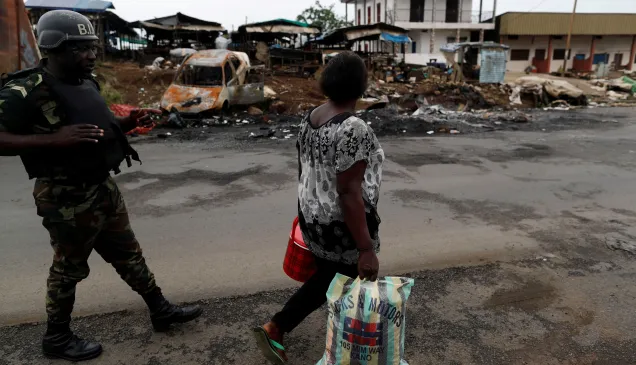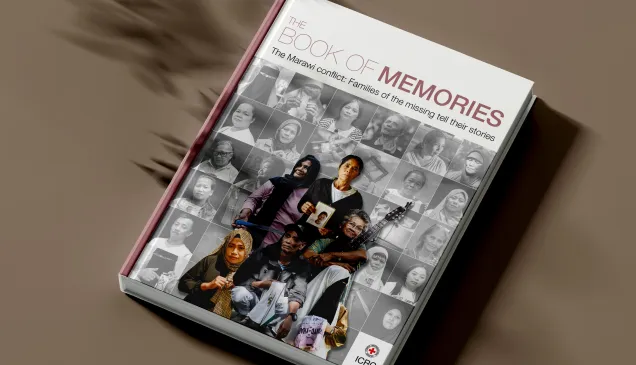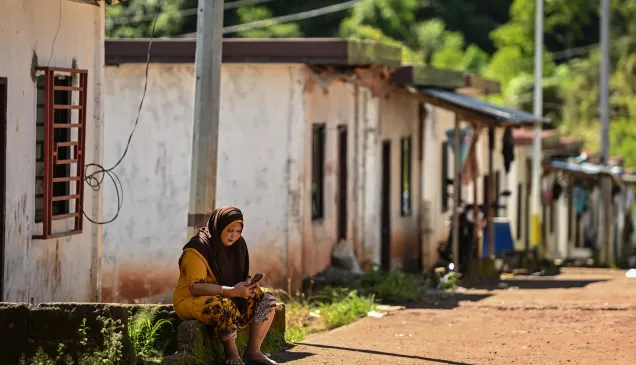Philippines: Hope after losing loved ones to the conflict
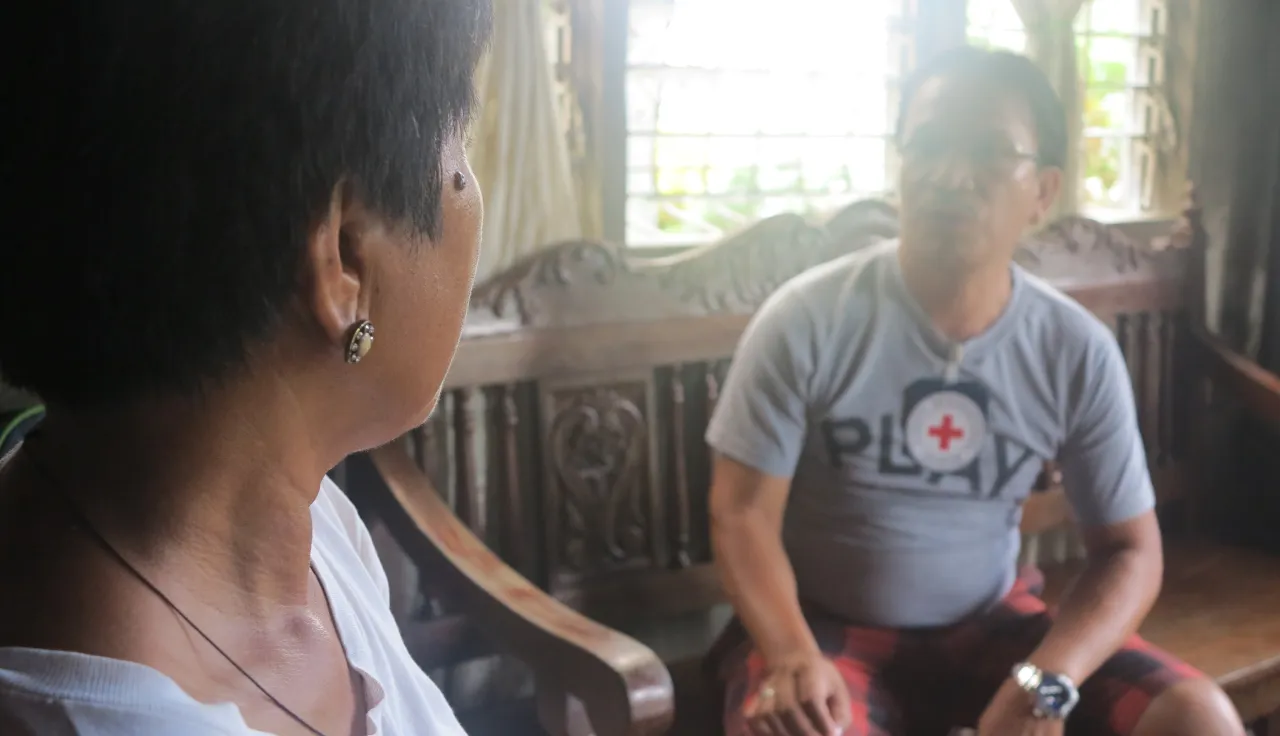
Two families in Northern Samar Province in central Philippines share their stories of longing and hope after losing their loved ones to the armed conflict.
Lorna and Rico had a son who was earning part time in a remote village in Northern Samar. "Rick would come home and help us with our expenses, especially at times when the harvest was poor," said Lorna. For farmers like her, extreme weather changes take a heavy toll on the harvest, which often means low yield and an inability to pay back loans they spent during the planting season.
Whenever the family was in financial trouble, their son found a way to ease the burden. But all turned for the worst when Rick was killed in May 2015 in connection to the protracted armed conflict in their community.
When they heard news of what happened, Lorna struggled to come to terms with her family's loss. "As a mother, the pain was unbearable."
The same heartbreak overtook 26-year-old Mylene when she learned that her husband Jose had mysteriously disappeared in 2014 in relation to the armed conflict.
"We met at a young age, fell in love, and started a family. In our seven years together, he took odd jobs. Months before we last saw him, he worked in a small company. His salary was just enough to provide for our daily needs," she said.
After her husband's disappearance, the mother of three went back to school to finish a degree in tertiary education. "I skipped college because we couldn't afford it. But this time, I needed to finish my college education. It's impossible to get a decent job without a diploma," she said. Mylene took out a loan to put up a small store and sold cosmetics and snacks to her classmates to pay for school expenses.
Adding to her challenges, Typhoon Nona destroyed part of their house in 2015. Even with all her additional jobs, her family still struggled to find money to have the roof fixed.
A glimmer of hope
In areas affected by conflict like Northern Samar, the ICRC may provide support to vulnerable families such as those who lost their breadwinners to the conflict. The ICRC thoroughly assesses how their livelihoods were seriously affected by the loss of their breadwinner or loved one, and assists those who fit the criteria.
After the ICRC looked into her family's situation, Lorna qualified to receive a cash grant to support their livelihood. Lorna received a total of Php15,000 and used Php10,000 to buy a pig to breed, along with feed. She said they used the remaining amount to buy rice and medicine for her husband's asthma.
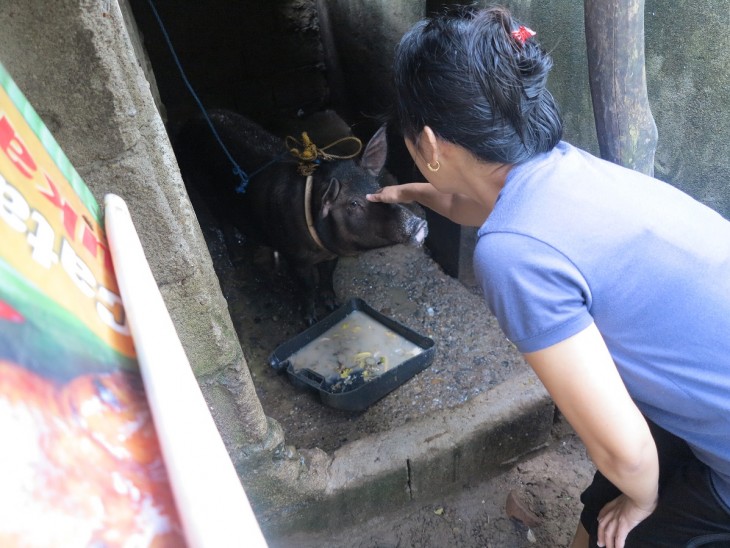
Mylene tends to her pig which she is ready to sell at Php4,000. CC BY-NC-ND / ICRC / S. BORGUETA
"The money we made from selling the pig added to our income, which helped to meet our daily needs and even to have some savings," Lorna said. For the second cycle, Lorna bought a piglet for Php2,700, which they plan to sell for at least Php7,000.
Initially, Mylene sought the help of the Philippine Red Cross (PRC) to learn the whereabouts of her husband. "I was only going to ask how they could help me find him. But they got back to me and told me that, because of what happened to my husband, I might qualify for livelihood support from the ICRC. I was thrilled."
Mylene received a Php15,000 grant, which she used to purchase a sewing machine and two piglets that she planned to eventually sell at a higher price.
"We bought the piglets for about Php3,000. After six months, we can make a profit of Php4,000 for each pig," she said. Her mother also started earning about Php800 a month sewing clothes for her neighbors.
"It is not so much, but it helped increase our income. We recently had our roof fixed. We now sleep better."
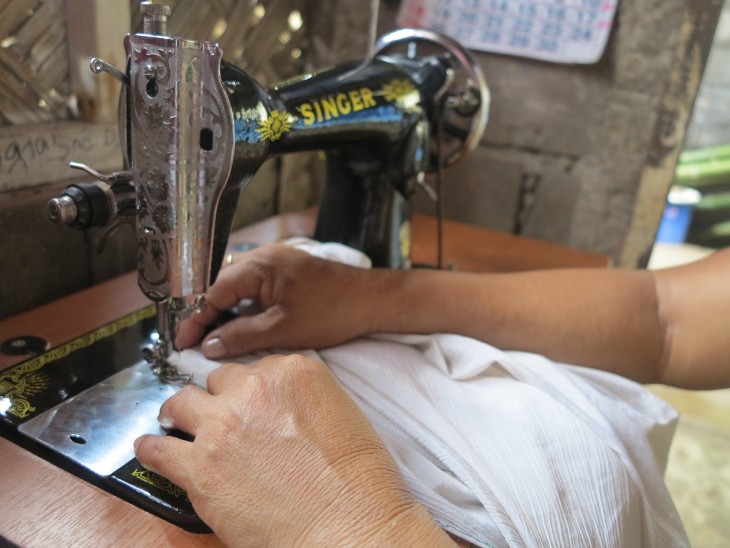
Mylene's mother is a skilled seamstress so she decided to buy her a sewing machine to earn extra money. CC BY-NC-ND / ICRC / S. BORGUETA
Learning to move on
Lorna shared that she once overheard her grandson speak about Rick to his friends: "Papa's trophies are still here with us, but he is never coming back." It broke her heart. Rick won many basketball tournaments, and his trophies have since been gathering dust in their living room.
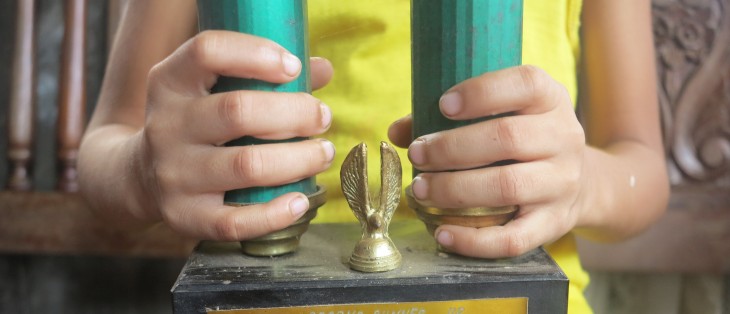
Lorna's grandson in grief, holding his father Rick's trophy. CC BY-NC-ND / ICRC / S. BORGUETA
Over the years, she has kept quiet about the pain she felt as a mother who lost her child. "He was my only child and he was a good man. I just pray that no one has to ever go through what we have gone through."
Mylene's case is different, as her children still ask about their father. She has trouble explaining to them when their father "would return."
"I tell them that he will soon return, but he hasn't. It's difficult. They miss him, especially since he used to pick them up from school and help them with their school projects."
(All names have been changed to protect their identities.)

